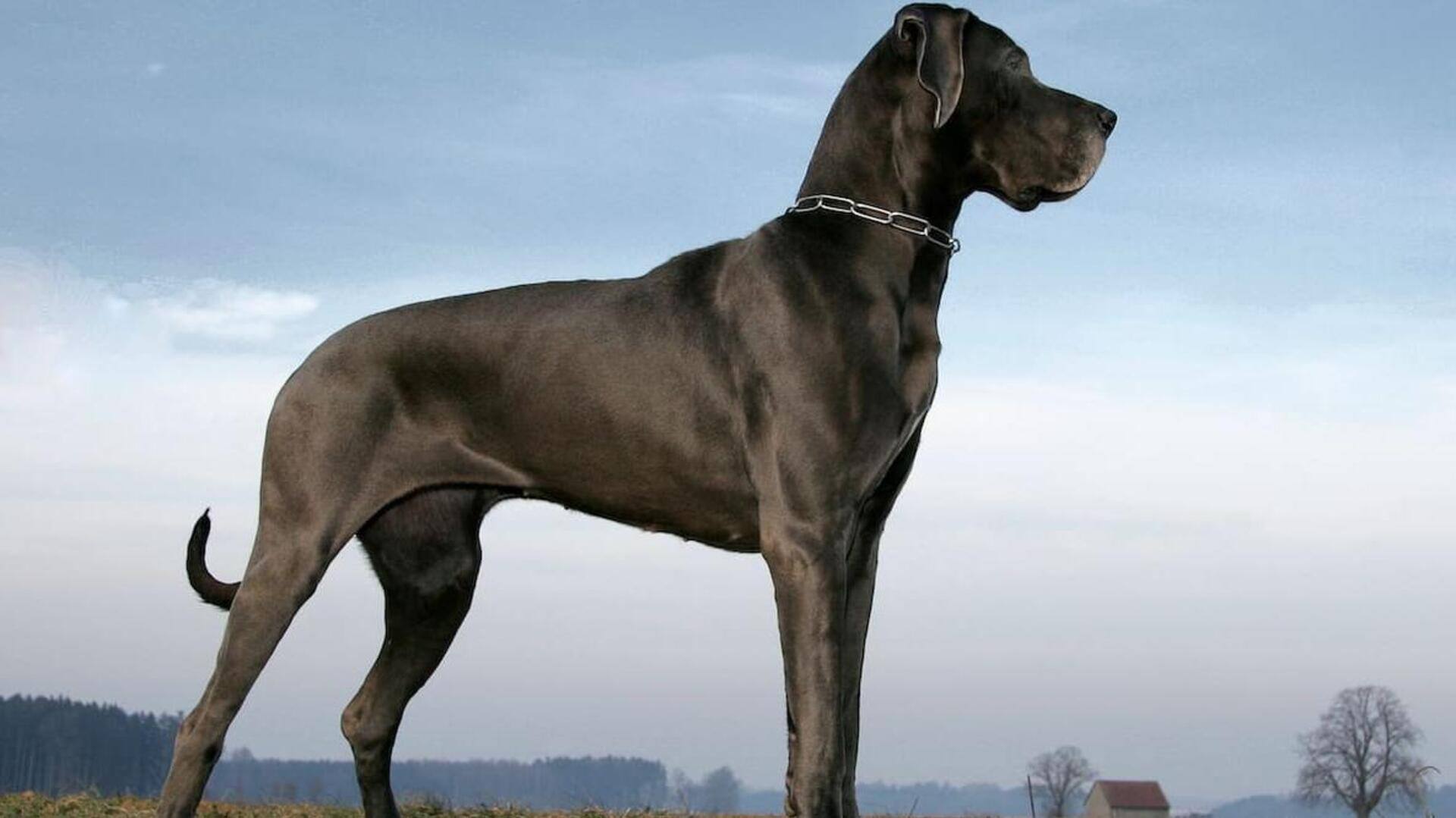How to take care of your aging Great Dane
What's the story
The Great Dane, renowned for its impressive size and gentle nature, is a breed that often becomes an integral part of the family.
As these dogs transition into their senior years, which typically begin around the age of six to eight, their care needs change.
Owners need to adjust their approach to ensure the continued health and contentment of their beloved pets.
Tip 1
Adjusting nutritional needs
With age, a Great Dane's metabolism slows, necessitating dietary adjustments to prevent obesity—a condition that can worsen joint problems prevalent in large breeds.
Opt for high-quality senior dog food formulated with suitable protein levels and fewer calories.
A veterinarian's personalized dietary advice is highly recommended to cater to your dog's specific health requirements as they age.
Tip 2
Maintaining mobility
Joint health is essential for aging Great Danes, considering their significant size and weight.
To maintain muscle tone and joint flexibility, regular, low-impact exercises like walking or swimming are recommended. These activities help avoid undue strain.
Supplements such as glucosamine or chondroitin can also be beneficial for joint health.
However, veterinary consultation is imperative before introducing any supplements to your dog's diet.
Tip 3
Grooming for comfort
In their senior years, Great Danes may have more sensitive skin. Gentle grooming with soft brushes can prevent irritation, promoting circulation and a healthy coat.
Regular nail trims are essential to avoid discomfort during walks.
Owners should watch for lumps or bumps that may indicate health issues, and seek veterinary attention if such signs are observed.
Tip 4
Cognitive health awareness
Like humans, Great Danes can experience cognitive decline as they age, with symptoms akin to dementia.
To combat this, engaging your dog in mental exercises using interactive toys or training routines is crucial for maintaining mental acuity.
It's also vital to monitor your Great Dane for any unusual behavioral changes, as these could be indicative of deeper cognitive issues that may require veterinary attention.
Tip 5
Regular health check-ups
As Great Danes age, consistent preventive health care becomes crucial.
Scheduling biannual veterinary checkups is essential for the early detection of age-related conditions such as arthritis, various heart diseases, or potential vision impairment.
Additionally, maintaining oral hygiene through regular dental care is vital to prevent infections that could severely affect a Great Dane's overall health and well-being.
